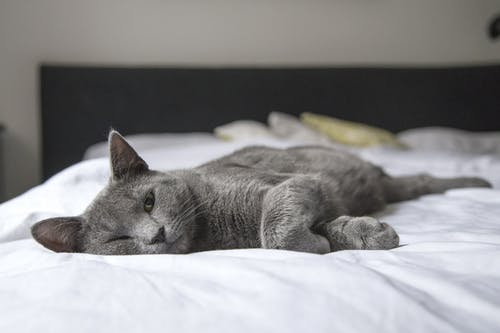Biting, eating, hunting toys, grooming and eating are just a few things cats can do using their mouths. Their teeth are active and come in contact with various objects and may develop a range of dental ailments with time.
Dental problems and infections are common among cats, mainly when older. Being aware of how painful toothaches can be and how it feels, we might conclude that it’s not comfortable for our furry friends. You may be amazed at how content your cat is after any problems with his mouth are resolved. Since prevention is always superior to treatment, creating an ongoing dental routine for your pet is essential.
Feline Dental Problems
Regular dental checkups and cleanings for your cat can aid in avoiding these issues. The most common dental problems for cats are listed below.
Bad Breath
Smelly cats’ breath can be a relatively common issue in veterinary medicine. Loud breath, also known as halitosis, could be caused by various oral health problems, ranging from primary periodontal disease to an affected tumor. A systemic illness like kidney disease or diabetes can cause halitosis as well.
The smell of bad breath must always be discussed with your vet, and you must be looking for any other signs of disease. When your pet is also experiencing changes in appetite, difficulty eating, vomiting, or diarrhea, get medical help as quickly as possible. These signs could indicate a more serious issue that needs immediate attention.
Periodontal Disease
In addition to weight issues and renal issues, or any other illness that we typically associate with cats, periodontal disease is the most frequent medical disease that cats suffer from. Most cats suffer from periodontal disease at the age of three, but we overlook the minor signs early as it is still treatable.
The accumulation of tartar and plaque on the teeth is the initial sign of periodontal diseases. The plaque can spread over the entire gum line with time, leading to irritation, infection, and tooth loss. Beginning a home-based dental routine early in your cat’s life could help a lot later by reducing tartar and plaque. Consult your veterinarian for more information on feline dental care.
Stomatitis
Feline stomatitis can be a painful condition characterized by intense swelling or ulceration of the oral cavity’s tissues. Stomatitis causes cats’ jaws to be extremely red and inflamed, and they are apprehensive about having their teeth examined. They usually have a decreased appetite because of the discomfort caused by eating. In extreme cases, they could be malnourished because of suffering.
Tooth Resorption
Resorption of the teeth in felines can affect three-quarters of cats older than five and are frequently mistakenly diagnosed. The body starts breaking into the dentin for undetermined reasons, causing the tooth to loosen and painfully opening up the tooth’s core.
The resorption of teeth may be a problem for a single tooth or a set of teeth. The tooth that is damaged is required to be removed after it is diagnosed. This is a severe condition. Look up “Veterinary surgeon in Middlesex” for the best results.
Cancer
Oral cavity cancer is among the fourth most common cancer cats suffer from. Gum cancers, lips and jawbones, tongue, and the palate are all possibilities. Mouth masses or a face that is bloated and drooling, weight loss, sudden tooth loss, or bad breath are all indications that oral cancer is present. Although cats may be affected by various types of cancer, most of them are Squamous Cell Cancers.
Early detection is crucial to ensure the effective treatment of oral cancer. It is difficult to treat when more significant tumors invade the bone. One of the reasons regular preventative care is essential is that masses are often discovered through regular cleanings and oral exams when they are small and easy to manage. Contact your veterinarian if your pet needs vet appointment.








